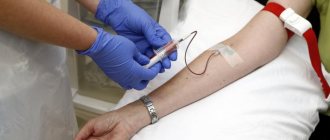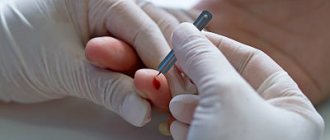What causes coughing up blood?
- Adults may have many reasons for coughing up blood, but the most common are:
- Bronchitis. Bronchitis is inflammation of the bronchi. Bronchi are tubes that deliver air to the lungs. There are 2 types of bronchitis. Acute bronchitis is a consequence of a respiratory infection. Chronic bronchitis occurs as a result of a long-term inflammatory process in the bronchi - smoking, industrial production.
- Pneumonia is an infection of the lung tissue.
- Pulmonary tuberculosis
- Bronchiectasis, bronchiectasis, is a disease or condition in which the bronchial tree is severely deformed and therefore very easily infected. The reasons for its occurrence may be different.
- Lung cancer affects the bronchi or lung tissue
- PE pulmonary embolism
- Primary pulmonary hypertension
- In children, the main causes of coughing up blood may be the following:
- Infection of the bronchi, upper respiratory tract or lungs.
- Entry of objects or pieces of food into the respiratory tract. The object may remain in the airway for days or even weeks before coughing up blood begins.
- Bronchiectasis. In children, it appears as a result of cystic fibrosis, which can also be congenital. In cystic fibrosis, thick mucus accumulates in the lungs, leading to frequent infections.
Treatment of bronchitis
Very important! Be sure to consult a doctor if you hear wheezing, severe coughing, or notice other signs of bronchitis in your child. The specialist must determine the nature of the disease and prescribe the correct medications and procedures. Folk remedies and uncontrolled use of broad-spectrum antibiotics are a sure path to complications. Source: M.O. Smirnova, E.V. Sorokina Bronchitis in children: principles of modern therapy // Difficult Patient, 2009, vol.7. No. 8-9, pp. 38-42 Indeed, in 99% of cases, bronchitis is of a viral nature, not bacterial.
What measures can parents take:
- provide the child with plenty of fluids so that mucus does not accumulate in the bronchi and dry to their walls;
- ensure that you take antipyretic medications recommended by your doctor at a certain level of body temperature (38-38.5 degrees);
- do not try to warm the child with household heaters - they make the air too dry and hot, and in case of bronchitis, the microclimate should be cool (no higher than 21 degrees) and with high humidity (about 70%);
- the doctor can teach you a special massage that should be performed at the recommended frequency (but not at high temperatures!);
- Don’t force feed your child if he doesn’t want to – he’s already under a lot of stress and doesn’t feel well, so don’t make it worse.
When the acute phase has passed, the child needs to walk and breathe fresh air. Moreover, even in acute cases, when it is difficult for the patient to go outside, it is possible and necessary to organize “sessions” of fresh air and sunlight: for example, going out onto the balcony after dressing the child warmly. Good ventilation of the lungs reduces the activity of viruses.
What medications are recommended by doctors?
Experts act very carefully with mucolytic agents. With weak chest muscles, it is difficult for a child to cough up large amounts of mucus, and it can literally “flood” the lungs. Cough medications are only necessary in certain cases:
- if the child has serious lung pathologies (congenital anomalies, low production of enzymes to thin sputum, etc.);
- in the presence of obstructive bronchitis, medications are prescribed to expand the lumen of the bronchi;
- a short course of a mucolytic drug can be prescribed if the disease is severe; this measure is combined with massage to remove phlegm and medications that stimulate coughing.
In addition to oral medications, inhalations may be prescribed. But only with the use of medications and special devices recommended by a doctor!
For bronchitis, exclude:
- hot steam inhalations;
- overheating of the chest with hot baths, compresses, clothing, warming ointments, mustard plasters.
Prevention measures
- Do not smoke near your child, or better yet, in the apartment.
- Get vaccinated against pneumococcus and other bacteria that cause this disease in a timely manner.
- Provide your child with ARVI prevention (do not overheat him, dress him in clothes appropriate for the weather, do hardening).








